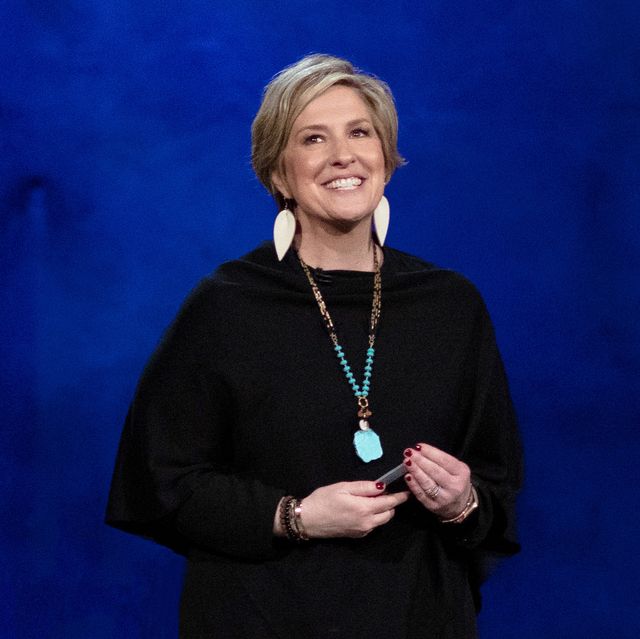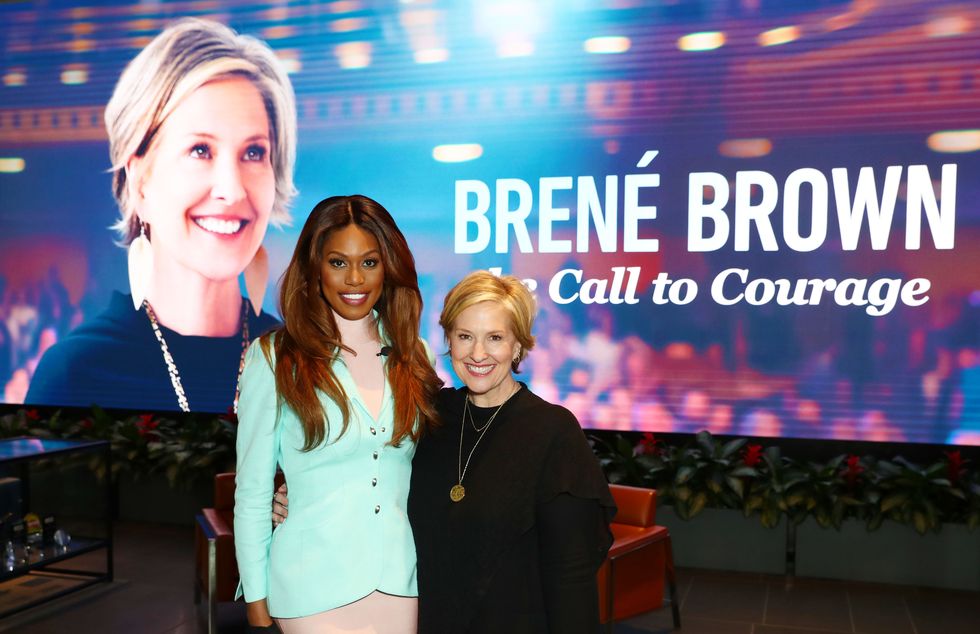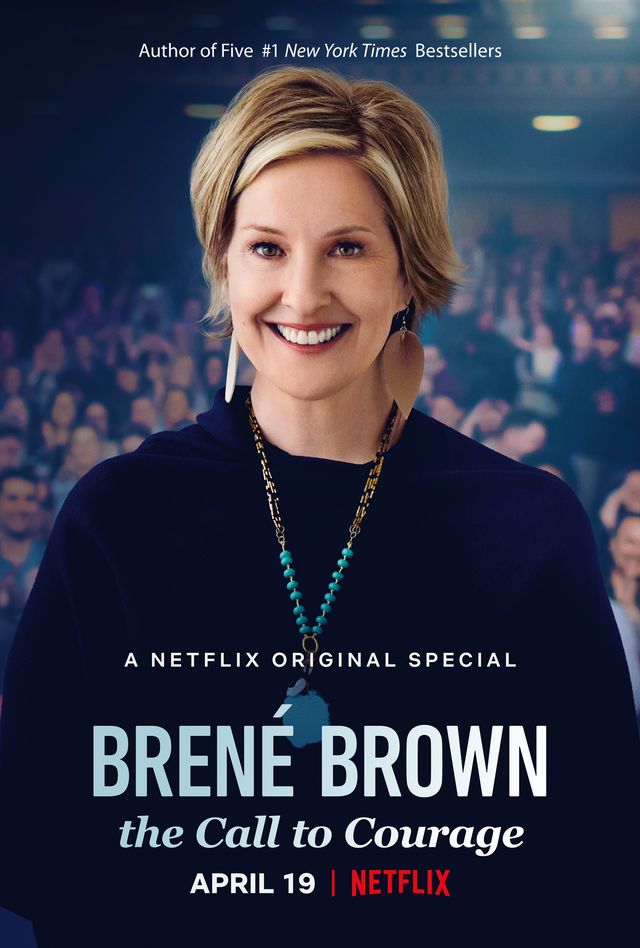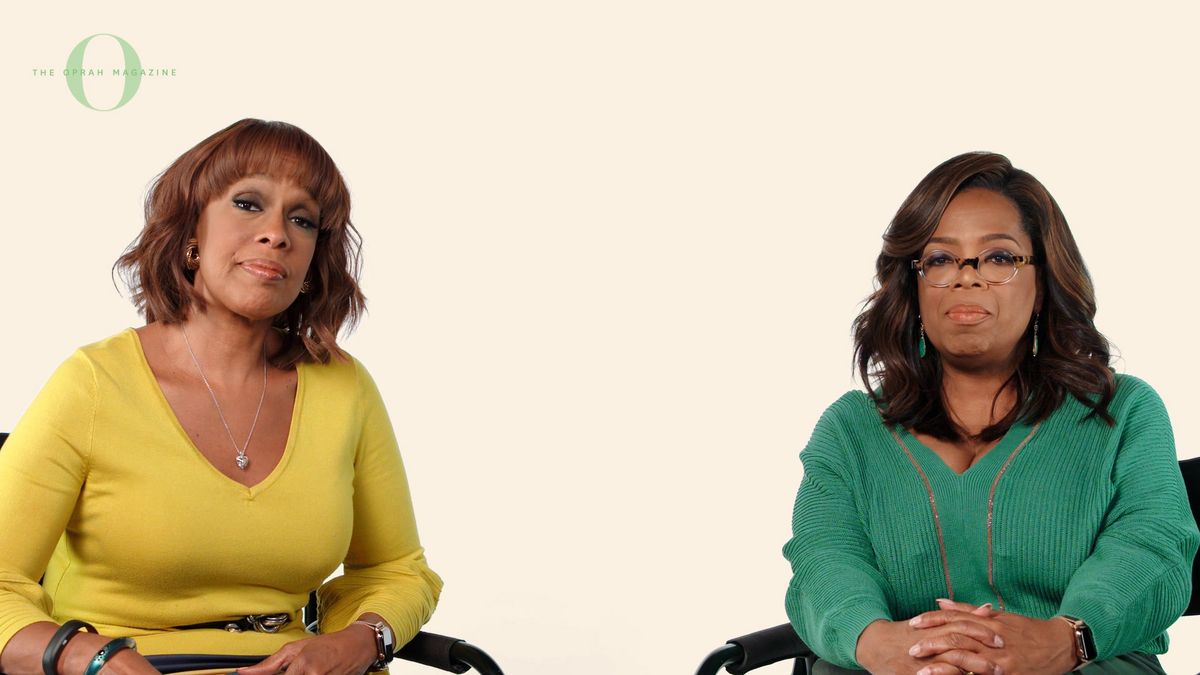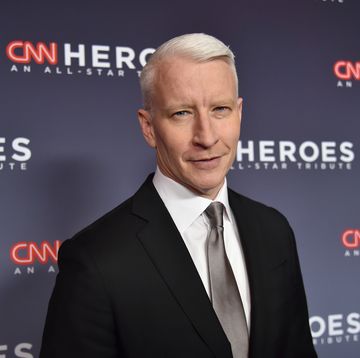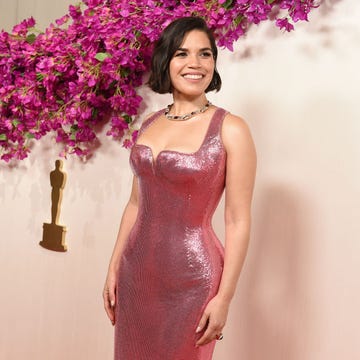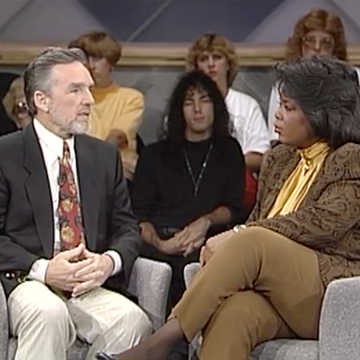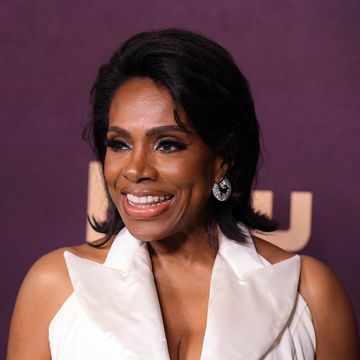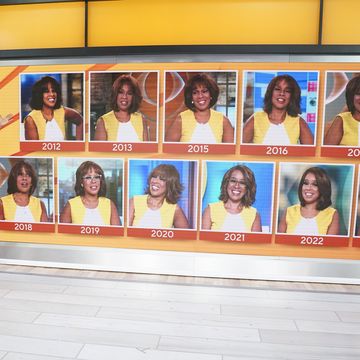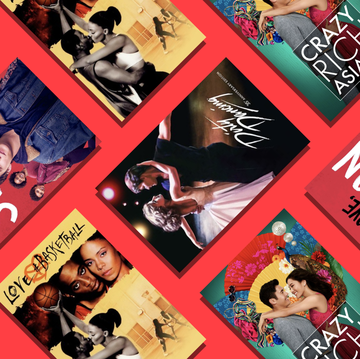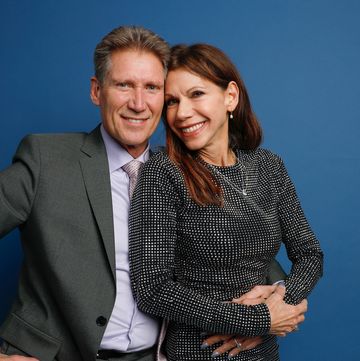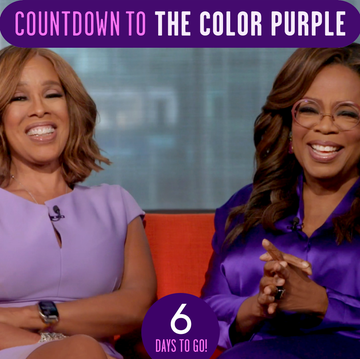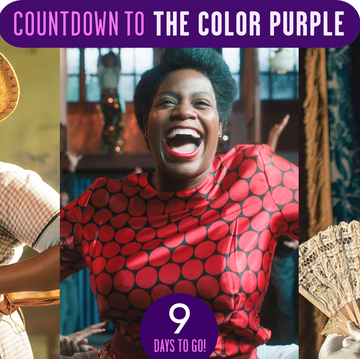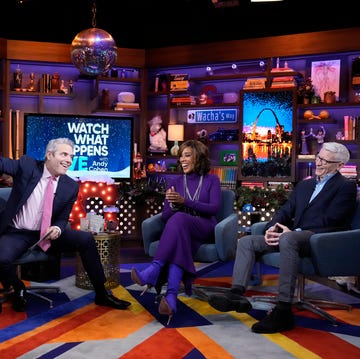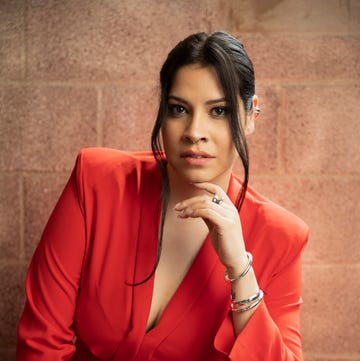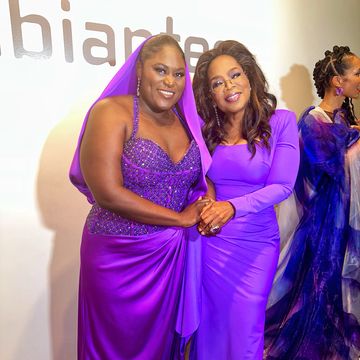Shame, fear, empathy, and vulnerability are some of the most powerful emotions that we feel as humans, but they’re often the most uncomfortable to have. Bestselling author and educator Dr. Brené Brown believes that you have to be willing to lean into your discomfort to invoke love into your life while discovering joy and finding a sense of belonging. That's the topic she explores in her new Netflix special, Brené Brown: The Call to Courage, where she reveals how she too struggles to confront embarrassment head-on. The special is available to watch now.
Brown, who is a research professor at the University of Houston, has spent her career studying shame and the relationship between vulnerability and courage. For the first time on Netflix, she unpacks research findings in front a live audience at Royce Hall inside the University of California (UCLA). The special, released April 18, is inspiring and a bit terrifying, as Brown offers practical tips on how to be courageous while living your best life. The quick takeaway? You have to be willing to let your guard down to attain it.
“You can’t really be brave without vulnerability,” Brown says. “Now, I can understand why it’s complicated for some people to get that. It took me 20 years to disprove that I had to be vulnerable to be brave. But really, this came to life for me when we started looking at covers for Daring Greatly, which is the first book where I wrote about courage and vulnerability.”
During the special, Brown also revisits her beloved 2010 TEDx Houston talk, The Power of Vulnerability, which explores the connection between courage and vulnerability. Specifically, Brown says that while the talk amassed over 38 million views quickly, she never experienced the hurtful online comments about her weight and appearance that came with it.
“You can study shame, but you are never prepared for the terrible stuff online,” she says during the special. “It’s the cesspool of humanity.”
To get past the painful comments, Brown distracted herself by watching Downton Abbey and searching for more information about the show, which brought her to a 1910 quote from President Theodore Roosevelt that changed her life and inspired her 2012 book, Daring Greatly.
"It is not the critic who counts; not the man who points out how the strong man stumbles, or where the doer of deeds could have done them better. The credit belongs to the man who is actually in the arena, whose face is marred by dust and sweat and blood; who strives valiantly; who errs, who comes short again and again, because there is no effort without error and shortcoming." — Theodore Roosevelt, 1910
The quote pushed her to have what the O of O calls an "aha! moment."
“There is my life before that quote and my life after that quote,” she says. “And three things became very clear to me that were really life-altering. One, I’m gonna live in the arena. I’m gonna be brave with my life. I’m gonna show up. I’m gonna take chances. And here’s a thing I can tell you for sure—20 years of doing this research, we just crossed 400,000 pieces of data—if you’re brave with your life and choose to live in the arena, you’re going to get your ass kicked. You are going to fall, fail, and you’re going to know heartbreak.”
She continued, "These are the words I say before my feet hit the floor every day, 'Today, I’ll choose courage over comfort. I can’t make commitments for tomorrow, but today, I’m gonna choose to be brave.'"
But how, exactly, can you find the same sense of love, joy, and belonging that Brown learned comes from putting yourself out there? Luckily, she outlined that for us, suggesting we start by answering three questions first.
Am I willing to open myself up for love?
"To love is to be vulnerable, to give someone your heart and say, 'I know this could hurt so bad, but I’m willing to do it,'" Brown says. "And there is an increasing number of people in the world today that are not willing to take that risk. They’d rather never know love than to know hurt or grief, and that is a huge price to pay. "
Do I really belong, or am I just fitting in?
"We’re wired for love and we're hardwired for belonging," Brown explains. "It’s in our DNA. We are in the midst of what I would call a political and social shit show right now. It’s a cultural nightmare. And we want belonging in the midst of this thing. The opposite of belonging, from the research, is fitting in. Fitting in is assessing and acclimating. Belonging is belonging to yourself first. Speaking your truth, telling your story, and never betraying yourself for other people. True belonging doesn’t require you to change who you are. It requires you to be who you are, and that’s vulnerable."
Deep down, am I scared of being happy?
"I’m here to tell you that joy is the most vulnerable of all human emotions," Brown says. "We are terrified to feel joy. We are so afraid that if we let ourselves feel joy, something will come along and rip it away from us, and we will get sucker-punched by pain and trauma and loss. So that, in the midst of great things, we literally dress rehearse tragedy. So often we’re afraid to be grateful for what we have, especially in front of people who’ve gone through great trauma and loss because we think it’s insensitive."
During the special, Brown also pointed out six misconceptions she often hears from subjects about vulnerability.
Vulnerability is weakness.
"Give me a single example of courage in your life, or that you've witnessed in someone else's, that did not require uncertainty, risk, or emotional exposure," Brown says. "Here's the rub: be brave but never put yourself out there. We've gotta dispel the myth."
I don’t do vulnerability.
"You only have two options—you do vulnerability knowingly, or vulnerability does you," Brown says. "People are taking their pain, and they're working it out on other people. And when you don't acknowledge your vulnerability, you work your shit out on other people."
I can go it alone.
"We're neurologically hardwired for connection with other people," Brown tells the audience, explaining why you can't be vulnerable by yourself. "In the absence of connection, love, and belonging, there is always suffering."
You can engineer the uncertainty and discomfort out of vulnerability.
According to Brown, there's no algorithm or magical formula for getting rid of the uncomfortable parts of being vulnerable.
"The minute it becomes comfortable, it's no longer vulnerability," she says.
Trust comes before vulnerability.
"It's a slow stacking over time of vulnerability and trust," says Brown. "We start with little things, and we build over time. You share with people who've earned the right to hear your story. Your story is a privilege to hear."
Vulnerability is disclosure.
Brown's takeaway was simple: There's no vulnerability without boundaries.
"You don't measure vulnerability by the amount of disclosure," she says. "You measure it by the amount of courage to show up and be seen when you can't control the outcome."
For more ways to live your best life plus all things Oprah, sign up for our newsletter!

Michelle is the Culture & News Writer for OprahMag.com, where she writes about celebrities (she considers herself an expert on Beyoncé and Reese Witherspoon), plus the latest in pop-culture news, binge-worthy TV shows, and movies. The transplanted Southerner turned ambitious New Yorker lives her best life by listening to hip-hop and Pod Save America, watching The Office on repeat, quoting Oprah-isms, eating dessert before dinner, and avoiding avocado. Seriously, she doesn’t get the hype.
It should say, “Michelle is the former Culture & News Writer for Oprahmag.com...”
